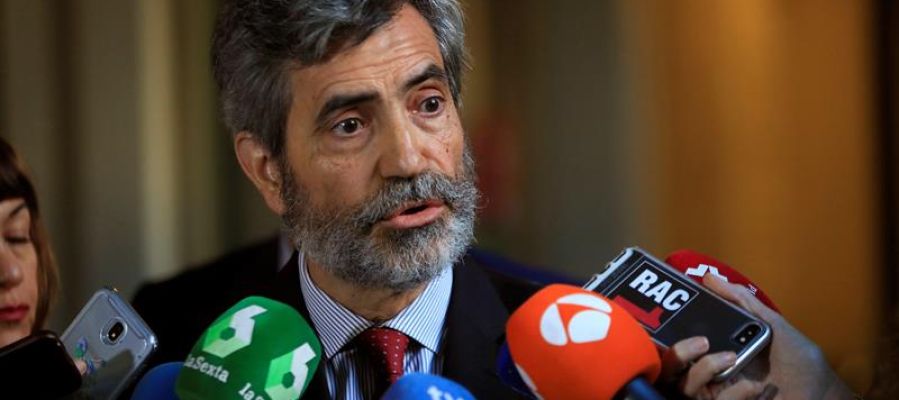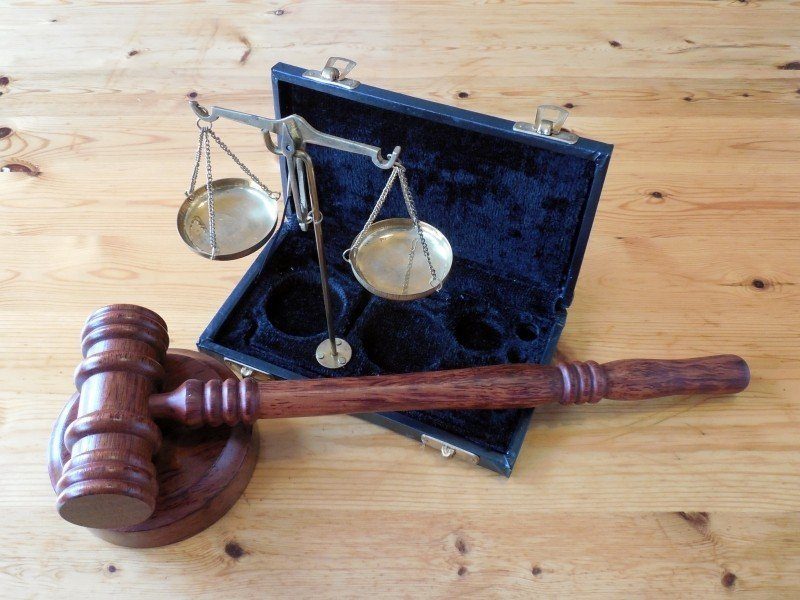Hace una semana os contábamos que el Tribunal Supremo daba marcha atrás a una decisión que tomó en febrero sobre quién debía soportar el pago de los impuestos generados por los actos jurídicos. Finalmente, la justicia decretaba hace siete días que debían ser los bancos quienes abonaran ese gasto, lo que provocaría un aluvión de reclamaciones judiciales para que las entidades financieras devolvieran lo que cobraron a los clientes de forma indebida. Desde que se tomó esa decisión, el asunto de las hipotecas se ha enturbiado hasta límites inimaginables
SUSPENSIÓN DE LOS EFECTOS DE LA SENTENCIA
En cuanto el Tribunal Supremo cambió el criterio y dictó sentencia, a las pocas horas saltaba la noticia: Quedaban en suspenso todos los recursos de casación hasta que decidiera definitivamente si confirmaba dicha jurisprudencia. Así lo argumentaba el conocido jurista y presidente de la sala de lo Contencioso-Administrativo Luis Diez-Picazo en una nota donde aclaraba lo siguiente: “Habida cuenta de la enorme repercusión económica y social del fallo” acordó que “con carácter urgente sea el propio pleno de la sala quien resuelva si dicho giro jurisprudencial deba ser o no confirmado”. Un hecho sin precedentes que sembró la confusión.
Una decisión que provocaría que se suspendieran todos los recursos de casación pendientes relacionados con este asunto. Para colmo, la sentencia no entraba a valorar si la decisión tenía carácter retroactivo para aquellas hipotecas firmadas con anterioridad al año 2014, aunque diversas organizaciones de consumidores piden que así sea también para hipotecas anteriores o incluso las ya canceladas. Por vía civil se debería poder solicitar mediante demanda la nulidad de la cláusula abusiva que imputaba al consumidor el pago de los impuestos generados por los actos jurídicos documentados.
Sin embargo, el Tribunal se ha dado 15 días para revisar (otra vez) la doctrina sobre el impuesto, y mientras tanto, todos los juicios hipotecarios en curso se verán paralizados. Esto será así hasta el día 5 de noviembre, cuando decida definitivamente si mantiene el criterio fijado a mediados de octubre o si lo revoca y vuelve a cargar al cliente con el impuesto de los actos jurídicos documentados, tal y como hiciera en febrero.
EL SUPREMO PIDE PERDÓN
Carlos Lesmes, presidente del Tribunal Supremo, ha tenido que salir a pedir perdón por la gestión del caso, por haber generado una zozobra sin precedentes y para desmentir presiones vertidas desde las entidades financieras para que den marcha atrás por el riesgo que esa decisión pudiera suponer a la banca. Fue precisamente Lesmes quien pidió a Diez-Picazo escribir la nota informativa anteriormente mencionada para esclarecer el asunto y despejar incertidumbres.
También el presidente aclaró que no pidió la dimisión de Diez-Picazo a quien considera un excelente magistrado y defendió el trabajo de la sala del tribunal que él preside, señalando que trabajaron con “calidad y eficacia, siempre en beneficio de la sociedad española y nunca al revés.” Eso sí, también considera que esta situación ha afectado a la imagen de la institución y que hay que trabajar para evitar que se repitan situaciones así.

MIEDO
Esta decisión final ha provocado miedo e incertidumbre en diversos sectores. Evidentemente, el primero es en la banca, que desde el día de la sentencia sintió cómo sus valores en bolsa se desplomaban. A medio y largo plazo, por la repercusión económica negativa que le puede generar. Recordamos que la agencia Moody’s cifraba en 4000 millones el impacto que pueden tener las reclamaciones de los usuarios contra las entidades financieras.
Por otro lado, la justicia: Desde el poder judicial se transmite cierta preocupación por el aluvión de reclamaciones que puede desencadenar la decisión. El hecho de que la justicia considere que el cliente no tiene que cargar con el pago del impuesto consecuencia de la firma de una hipoteca y sí el banco, va a tener un efecto llamada difícilmente soportable para los juzgados: Se prevé que los usuarios reclamen en masa la devolución de estos importes a través de multitud de reclamaciones y el miedo reside en que la justicia no tenga funcionarios suficientes para soportar esta carga procesal sin que se produzca un desbordamiento por falta de efectivos.
Por último, los clientes: Palpando la situación a pie de calle, se percibe una sensación de cierta alegría contenida. Evidentemente, para ellos, conseguir que se les devuelvan cantidades cercanas a los 2000 euros es un auténtico alivio, pero tienen la sensación de que lo que la banca pierda por un lado, lo van a recuperar por otro. Y aunque en público distintos representantes de la banca lo desmienten (como por ejemplo, Dolores Dancausa, Presidenta de Bankinter, quien ha dicho que están asumiendo el pago del impuesto de las hipotecas que se firman), en privado distintas fuentes cercanas a los bancos reconocen que están convencidos de que intentarán amortiguar la caída cobrando comisiones a los clientes por distintos servicios.
————————————————————————————————————————————————————————————————–
THE SUPREME COURT FILLS CONFUSION ON DOCUMENTED LEGAL ACTS
A week ago we told you that the Supreme Court reversed a decision made in February on who should support the payment of taxes generated by legal acts. Finally, the court decreed seven days ago that it should be the banks that paid that expense, which would cause a barrage of legal claims for financial institutions to return what they charged to customers inappropriately. Since that decision was made, the issue of mortgages has blurred to unimaginable limits
SUSPENSION OF THE EFFECTS OF JUDGMENT
As soon as the Supreme Court changed the criterion, within a few hours the news leapt: All the appeals were suspended until it definitively decided whether to confirm said jurisprudence. This was argued by president of the Contentious-Administrative Chamber, Luis Diez-Picazo, in a note where he clarified the following: “Given the enormous economic and social repercussions, as a matter of urgency, Whoever decides whether this jurisprudential shift should be confirmed or not “. An unprecedented fact that sowed confusion.
A decision that would cause all appeals related to this matter to be suspended. However, the Court has given itself 15 days to review (again) the doctrine on the tax, and meanwhile, all the foreclosing lawsuits in progress will be paralyzed. This will be the case until November 5, when it definitively decides whether to maintain the criterion set in mid-October or if it revokes it and reloads the client with the tax of legal acts documented, as it did in February.
THE SUPREME ASKS FORGIVENESS
Carlos Lesmes, president of the Supreme Court, has had to go out to apologize for the management of the case, for having generated an unprecedented anxiety and to dispel pressures from financial institutions to back down the risk that this decision could mean to the bank It was precisely Lesmes who asked Diez-Picazo to write the information note mentioned above to clarify the matter and clear up uncertainties.
The president also clarified that he did not request the resignation of Diez-Picazo whom he considers an excellent magistrate and defended the work of the courtroom he presides over, noting that they worked with “quality and efficiency, always for the benefit of Spanish society and never the other way round. “Of course, he also considers that this situation has affected the image of the institution and that we must work to prevent such situations from happening again.
FEAR
This final decision has caused fear and uncertainty in various sectors. Obviously, the first is in banking, which from the day of the judgment felt how their stock market values plummeted. In the medium and long term, due to the negative economic repercussion that it can generate. We recall that the Moody’s agency estimated the impact that users’ claims against financial entities could have on 4000 million.
On the other hand, justice: From the judicial power there is a certain concern about the flood of claims that may trigger the decision. The fact that the court considers that the client does not have to pay the tax due to the signing of a mortgage and if the bank, will have an effect called difficult for the courts: The users are expected to claim mass the return of these amounts through a multitude of claims and the fear lies in that the justice does not have enough officials to support this procedural burden without an overflow due to lack of personnel.
Finally, customers: Palpando the situation at street level, you feel a sense of some contained contentment. Obviously, for them, getting them back to amounts close to 2000 euros is a real relief, but they have the feeling that what the bank loses on the one hand, they will recover for another. And although in public different representatives of the bank deny it (as for example, Dolores Dancausa, President of Bankinter, who has said that they are assuming the payment of the tax of the mortgages that are signed), in private different sources close to the banks recognize
Fuentes / Sources:
https://elpais.com/economia/2018/10/23/actualidad/1540320567_742579.html?id_externo_rsoc=TW_CM
https://elpais.com/economia/2018/10/22/actualidad/1540236679_872227.html
https://elpais.com/economia/2018/10/24/actualidad/1540407302_211685.html
Visitas: 298


